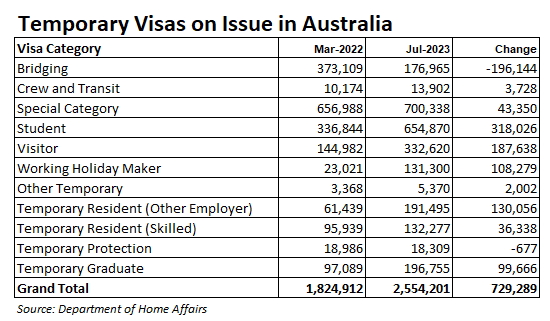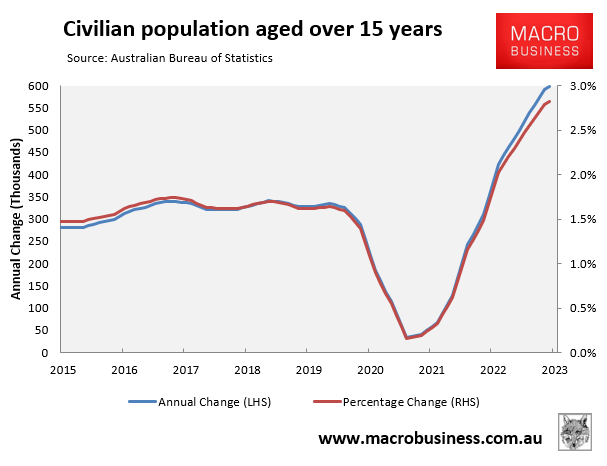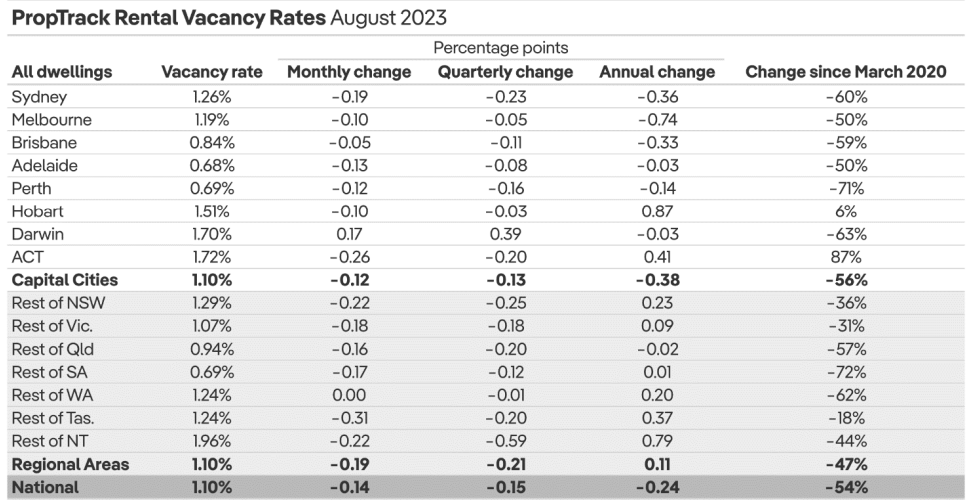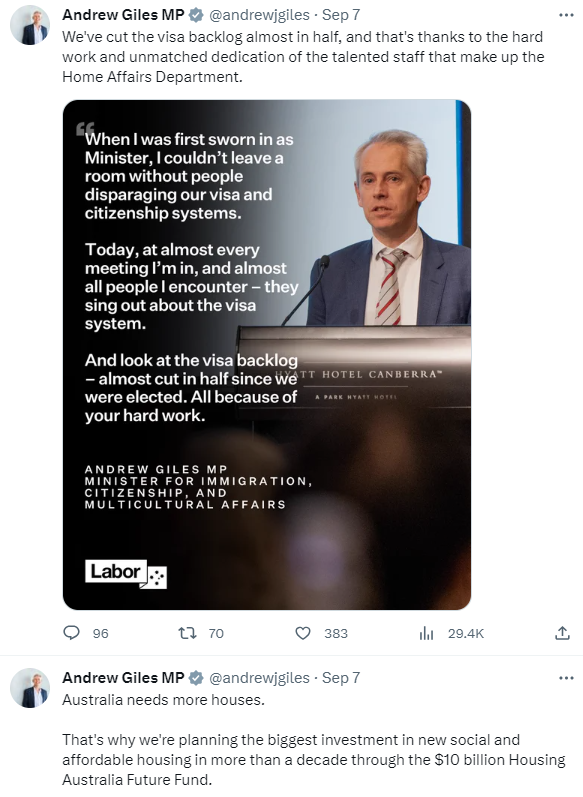Daily Telegraph National Political Editor, James Campbell, has questioned why the Albanese Government is “putting further pressure on housing and rents” after allowing an extra 730,000 people into Australia on temporary visas:
“Official figures show that between March last year and the end of July this year the number of people in Australia on temporary visas jumped from around 1.8 million to roughly 2.5 million — at a time when the nation’s shortage of housing has been growing”, Campbell writes.
“The increase in the number of temporary visa-holders was equivalent to the population of the Gold Coast-Tweed Heads or Tasmania and the Northern Territory put together”.
The next table, derived from the Department of Home Affairs’ temporary visa statistics, breaks down the increase in visa numbers by category:

As you can see, student and graduate visas have driven the increase, growing by 418,000 between March 2022 and July 2023.
Employment visas (skilled, working holiday, and other) have also ballooned by 275,000 over the same period.
Worryingly, the growth in population of those most likely to need housing (i.e. aged 15 and over) has surged by around 600,000 people in the year to July, and by 737,000 since March 2022, according to the monthly ABS labour force statistics:

This huge growth in housing demand largely explains why the nation’s rental vacancy rate has collapsed to a record low and rents at the combined capital city level are growing at a double-digit pace:

It seems the Albanese Government’s major accomplishment since being elected is delivering the nation’s worst rental crisis in modern history.

Moreover, judging by the latest comments from immigration minister Andrew Giles, Labor will keep the immigration pedal to the floor by rubber stamping as many visa applications as possible.
In the process, thousands more Australians will be driven into financial stress, forced to live in group housing, or tossed onto the street into homelessness.
It is an inequality disaster in the making.

